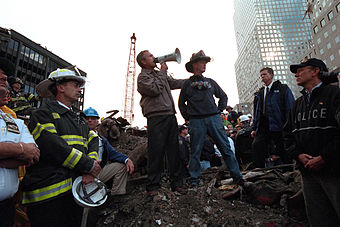| Main page | Showcase | Project |
Introduction
Conservatism is a cultural, social, and political philosophy and ideology, which seeks to promote and preserve traditional institutions, customs, and values. The central tenets of conservatism may vary in relation to the culture and civilization in which it appears. In Western culture, depending on the particular nation, conservatives seek to promote and preserve a range of institutions, such as the nuclear family, organised religion, the military, the nation-state, property rights, rule of law, aristocracy, and monarchy. Conservatives tend to favour institutions and practices that enhance social order and historical continuity.
Edmund Burke, an 18th-century Anglo-Irish statesman who opposed the French Revolution but supported the American Revolution, is credited as one of the forefathers of conservative thought in the 1790s along with Savoyard statesman Joseph de Maistre. The first established use of the term in a political context originated in 1818 with François-René de Chateaubriand during the period of Bourbon Restoration that sought to roll back the policies of the French Revolution and establish social order.
Conservatism has varied considerably as it has adapted itself to existing traditions and national cultures. Thus, conservatives from different parts of the world, each upholding their respective traditions, may disagree on a wide range of issues. Historically associated with right-wing politics, the term has been used to describe a wide range of views. Conservatism may be either libertarian or authoritarian, populist or elitist, progressive or reactionary, moderate or extreme. (Full article...)
Selected article
Selected quote
Here we get on track of what conservatism is. We must carefully observe the strength of Falkland's language. He does not say that when it is not necessary to change, it is expedient or advisable not to change; he says it is necessary not to change. Very well, then, the differentiation of conservatism rests on the estimate of necessity in any given case. Thus conservatism is purely an ad hoc affair; its findings vary with conditions, and are good for this day and train only. Conservatism is not a body of opinion, it has no set platform or creed, and hence, strictly speaking, there is no such thing as a hundred-per-cent conservative group or party — Mr. Justice McReynolds and Mr. Baker may stand at ease. Nor is conservatism an attitude of sentiment. Dickens's fine old unintelligent characters who "kept up the barrier, sir, against modern innovations" were not conservatives. They were sentimental obstructionists, probably also obscurantists, but not conservatives.
Nor yet is conservatism the antithesis of radicalism; the antithesis of radical is superficial. Falkland was a great radical; he was never for a moment caught by the superficial aspect of things. A person may be as radical as you please, and still may make an extremely conservative estimate of the force of necessity exhibited by a given set of conditions. A radical, for example, may think we should get on a great deal better if we had an entirely different system of government, and yet, at this time and under conditions now existing, he may take a strongly conservative view of the necessity for pitching out our system, neck and crop, and replacing it with another. He may think our fiscal system is iniquitous in theory and monstrous in practice, and be ever so sure he could propose a better one, but if on consideration of all the circumstances he finds that it is not necessary to change that system, he is capable of maintaining stoutly that it is necessary notto change it. The conservative is a person who considers very closely every chance, even the longest, of "throwing out the baby with the bath-water," as the German proverb puts it, and who determines his conduct accordingly.
— Albert Jay Nock, A Little Conserva-tive in The Atlantic Monthly (October 1936)
Selected image
The September 11 terrorist attacks were a major turning point in George Bush's presidency. That evening, he addressed the nation from the Oval Office, promising a strong response to the attacks but emphasizing the need for the nation to come together and comfort the families of the victims. On September 14, he visited Ground Zero, meeting with Mayor Rudy Giuliani, firefighters, police officers, and volunteers. Bush addressed the gathering via a megaphone while standing on a heap of rubble, to much applause:
| “ | I can hear you. The rest of the world hears you. And the people who knocked these buildings down will hear all of us soon. | ” |
Credit: Jebur
Did you know...
- ...that Ronald Reagan's autobiography, An American Life, reached number eight on The New York Times' bestsellers list?
- ... that in 1952, after giving the Checkers speech, Richard Nixon dictated a telegram resigning as Dwight D. Eisenhower's running mate, but his campaign manager Murray Chotiner ripped it up unsent?
- ... that Helen Grant became the first black female candidate to be elected as a Conservative member of Parliament?
Selected anniversaries in June
- 1979 – in the United States, the Moral Majority is founded by Jerry Falwell and Paul Weyrich.
- 1983 – the United Kingdom general election was held on 9 June. It gave the Conservative Party under Margaret Thatcher the most decisive election victory since that of Labour in 1945.
- 1987 – in a reference to the Berlin Wall, US President Ronald Reagan challenges Soviet leader Mikhail Gorbachev to "Tear down this wall!"
Topics
Associated Wikimedia
The following Wikimedia Foundation sister projects provide more on this subject:
-
Commons
Free media repository -
Wikibooks
Free textbooks and manuals -
Wikidata
Free knowledge base -
Wikinews
Free-content news -
Wikiquote
Collection of quotations -
Wikisource
Free-content library -
Wikiversity
Free learning tools -
Wiktionary
Dictionary and thesaurus









